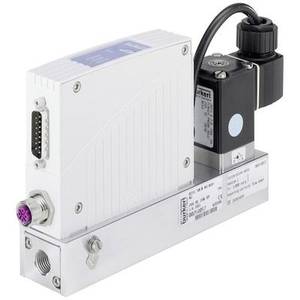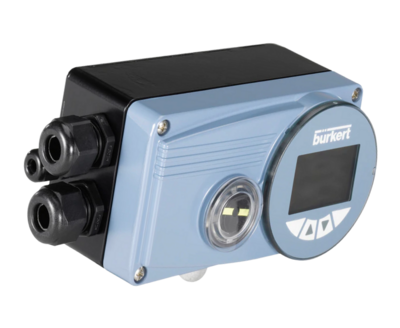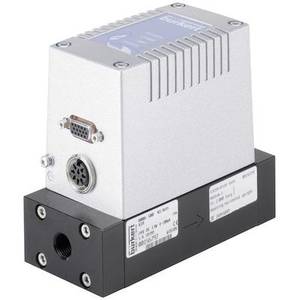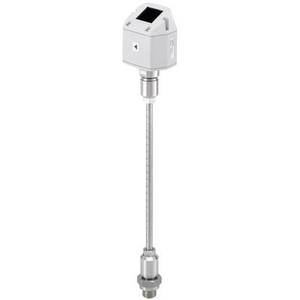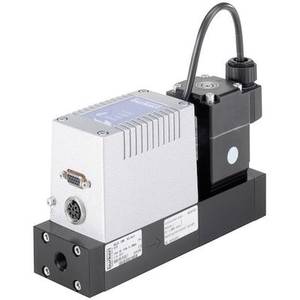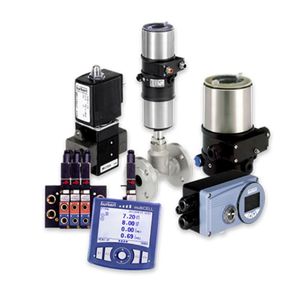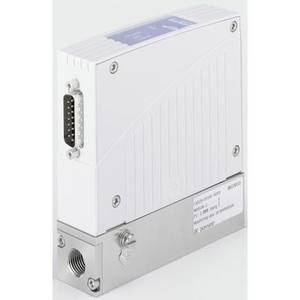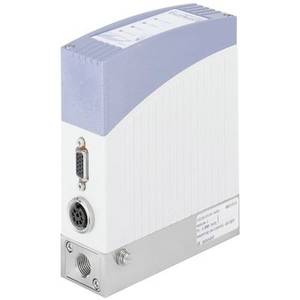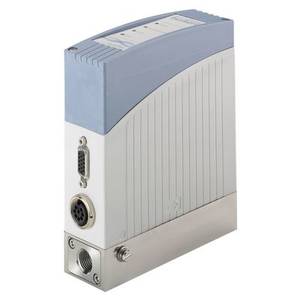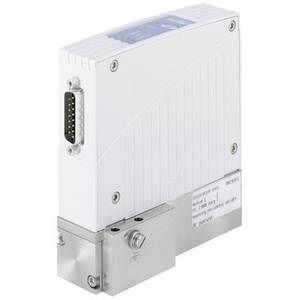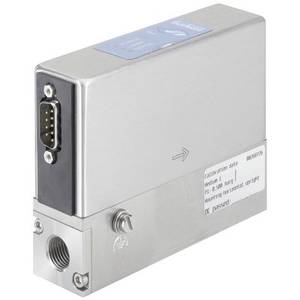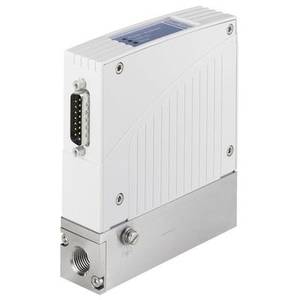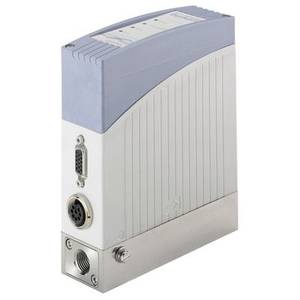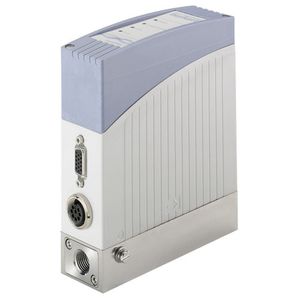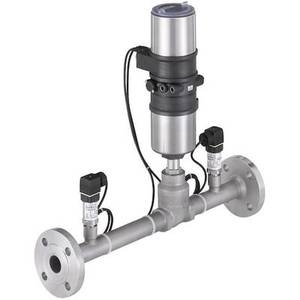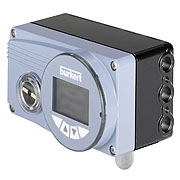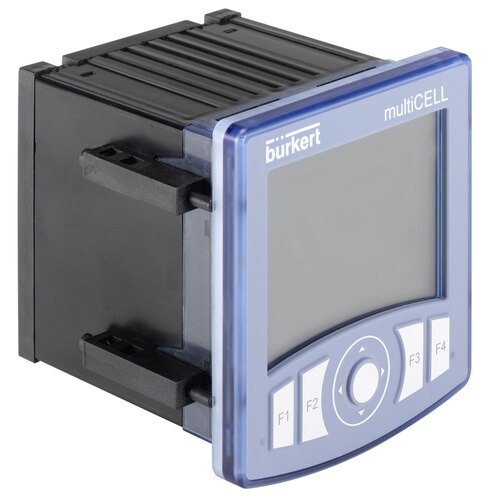Burkert Mass Flow Controllers
Burkert 178716 (00178716) Mass flow controller
- Type of regulator: Mass flow rate
- Mass flow rate range: 0.001 to 10 kg/h
- Hole diameter: 1/8 inch (3.175 mm)
- Body material: AISI 316L stainless steel
Burkert 318040 SideControl NAMUR
- Flow control: The 318040 can control liquid or gas flow with an accuracy of 0.1%.
- Level control: The controller can be used to control the level of a liquid in a tank.
- Temperature control: The controller can be used to control the temperature of a liquid or gas.
- Pressure control: The regulator can be used to control the pressure of a liquid or gas.
- Nominal flow ranges from 20 l/min up to 1500 l/min
- High measuring accuracy and repeatability
- Fast settling times
- Protection class IP65
- Optional: Fieldbus interface
Positioner
Burkert mass flow controller - designed for regulating the flow of aggressive gases.
8619-3 * COND & 1PH & 1out- panel1
4 DIN- flow Type 8619
Item No. 563430
Burkert Mass Flow Controllers
Burkert offers a range of mass flow controllers (MFC) for industrial gas flow optimization as part of its fluid control solutions. Mass flow controllers are devices designed to measure and control the flow of gases with high accuracy. These controllers are used in various industries where precise control of gas flow is critical. In our material today, we will take a closer look at gas mass flow controllers from Burkert.
How Does Mass Flow Controllers Work
Burkert flow control devices operate based on the principles of Coriolis mass flow measurement. The Coriolis effect is a phenomenon that occurs when a mass is moving in a rotating system, resulting in a deflection from its straight path. In the context of mass flow controllers, the Coriolis effect is harnessed to measure the mass flow rate of a fluid flowing through a vibrating tube.
The MFC mass flow controller consists of a flow sensor, electronics, and a solenoid control valve as an actuator. The reference value is set electrically via an analog signal or Fieldbus. The actual value measured by the sensor is compared with a reference value in the controller. The controller supplies the drive with a pulse-width modulated voltage signal as a correction variable and changes it according to the recorded control deviation. The actual value is also transmitted externally via an analog signal or Fieldbus. Therefore, it is provided to the user for control and analysis.
Applications of Burkert Mass Flow Controllers
Burkert mass flow controllers find applications in various industries and processes where accurate and precise control of gas flow rates is essential. Let's find out more information about mass flow meter applications.
Semiconductor manufacturing
In semiconductor fabrication processes, precise control of gas flow rates is crucial for creating optimal conditions during deposition, etching, and other manufacturing steps.
Pharmaceutical and biotechnology
Burkert mass flow controllers are used in pharmaceutical and biotech applications for the control of gases in processes such as fermentation, sterilization, and gas blending.
Analytical instrumentation
Mass flow controller for gases plays a critical role in analytical instruments like gas chromatographs and mass spectrometers, ensuring accurate gas flow rates for sample analysis.
Environmental monitoring
In environmental monitoring systems, mass flow controllers are used to regulate the flow of calibration gases for sensors and analyzers.
Laboratory research
Research laboratories often use mass flow controllers for experiments and processes that require precise control of gas flow rates.
Medical equipment
Mass flow controllers are utilized in medical equipment manufacturing, such as in the control of gases for anesthesia delivery systems and respiratory therapy.
Fuel cell testing
In the development and testing of fuel cells, mass flow controllers help regulate the flow of hydrogen or other gases to maintain optimal conditions.
Industrial processes
Burkert mass flow controllers are employed in various industrial processes, including heat treating, metalworking, and chemical manufacturing, where accurate gas flow control is necessary.
Aerospace and aviation
Mass flow controllers play a role in aerospace applications, such as in the testing and calibration of propulsion systems.
Energy production
In energy-related applications, mass flow controllers can be used for the precise control of gases in processes like combustion and gasification.
Food and beverage
Mass flow controllers may be utilized in food and beverage processing for applications such as inert gas blanketing, carbonation, and control of fermentation gases.
Cryogenics
In cryogenic applications, where extremely low temperatures are involved, mass flow controllers help regulate the flow of cryogenic gases.
Benefits of Using Burkert Mass Flow Controllers
Using Burkert liquid mass flow controller in various industrial applications offers several benefits. So let’s check them.
High precision and accuracy
These mass flow controllers are designed to provide accurate and precise measurements of gas flow rates, ensuring consistency and reliability in industrial processes.
Compact and space-saving design
Burkert often designs its mass flow controllers to be compact, making them suitable for integration into systems with limited space.
Wide range of applications
Such controllers are suitable for a diverse range of applications, including semiconductor manufacturing, pharmaceuticals, biotechnology, environmental monitoring, laboratory research, and more.
Coriolis mass flow measurement
The mass flow controllers utilize the Coriolis effect for mass flow measurement, which is a robust and reliable technology for accurate readings.
Reliability in harsh environments
Burkert designs each mass flow controller to withstand harsh industrial environments, ensuring durability and reliability even in challenging conditions.
Digital communication and integration
Burkert mass flow controllers come equipped with digital communication protocols (such as PROFIBUS, Modbus, etc.), allowing for easy integration into larger process control systems.
Customization options
Burkert provides customization options to meet specific application requirements, allowing users to tailor the mass flow controllers to their unique needs.
Versatility in gas types
These mass flow controllers are available for various gases, making them versatile and adaptable to different industrial processes.
Responsive control
The closed-loop control system in Burkert mass flow controllers ensures real-time adjustments to the gas flow rates, maintaining precise control and responding quickly to changes in process conditions.
Compliance with industry standards
Such equipment is designed to comply with industry standards, ensuring that they meet the requirements for safety and performance.
Easy calibration and maintenance
Many Burkert mass flow controllers are designed for easy calibration, and some models may offer self-diagnostic features to facilitate maintenance and troubleshooting.
Energy efficiency
Accurate control of gas flow rates helps optimize energy consumption in various processes, contributing to overall energy efficiency.
Selecting the Right Burkert Mass Flow Controller
When you looking for the best mass flow controllers you should focus on several factors to ensure they meet the specific requirements of your application. Let’s discover some.
- Identify the type of gas or gases that the mass flow controller will handle. Burkert offers controllers designed for specific gases, so choose one that is compatible with the gases used in your process.
- Determine the required flow range for your application. Burkert provides mass flow controllers with different flow rate ranges, so select a model that covers the flow rates you need.
- Consider the level of accuracy and precision required for your process. Burkert mass flow controllers offer different levels of accuracy, and the specific application may dictate the necessary precision.
- Take into account the environmental conditions in which the mass flow controller will operate. Consider factors such as temperature, pressure, and any potentially corrosive or hazardous elements. Ensure that the chosen controller is suitable for these conditions.
- Determine the communication protocol required for seamless integration into your process control system. Burkert controllers often support various digital communication protocols, so choose one that aligns with your system's requirements.
- Verify that the mass flow controller complies with industry standards and regulations relevant to your application. Check for certifications that ensure the instrument meets safety and performance requirements.
- Evaluate the response time of the mass flow controller. In some applications, a faster response time may be critical to maintaining process stability.
- Ensure that the mass flow controller's power requirements match the available power supply in your facility. Consider power consumption, especially in applications where energy efficiency is a priority.
- Consider the physical installation requirements of the mass flow controller. Check the available space and mounting options to ensure compatibility with your system.
- Evaluate the ease of calibration and maintenance. Some Burkert mass flow controllers offer user-friendly calibration procedures and may include self-diagnostic features for easier maintenance.
- Compare the costs of each Burkert mass flow controller and weigh them against the specific features and performance characteristics required for your application.
- Consider the availability of technical support from Burkert and the comprehensiveness of product documentation. This is crucial for troubleshooting, installation, and ongoing maintenance.
Always refer to Burkert's official documentation, consult with their technical support, and, if necessary, involve an engineer or specialist to ensure that the selected mass flow controller is the most suitable for your specific application.
Burkert Mass Flow Controller Innovations
Burkert gas flow control solutions introduce innovations in their products to enhance performance, accuracy, functionality, and ease of use. Here are some areas of innovation in mass flow controllers.
Advanced sensor technology
Integrates advanced sensor technologies to improve the accuracy and reliability of mass flow measurement.
Digital communication protocols
Continuous support for the latest digital communication protocols, ensuring seamless integration with modern industrial control systems.
Smart features
Applying intelligent features such as self-diagnosis capabilities, remote monitoring, and predictive maintenance to improve overall system reliability.
Extended range of compatible gases
Expanding the range of gases that controllers can handle for a wider range of applications.
Increased response time
Improved response time for faster setup and better control in dynamic processes.
Settings options
Provide additional customization options to meet specific customer requirements and application needs.
Energy efficiency
Integration of functions aimed at optimizing energy consumption and increasing overall system efficiency.
User-friendly interface
Improvements to user interfaces, including intuitive menus and simplified calibration procedures for ease of use.
Compact and modular designs
Continuous efforts to develop compact and modular systems for ease of installation and integration into a variety of applications.
Compliance with industry standards
Ensure mass flow controllers comply with the latest industry standards and regulations.
